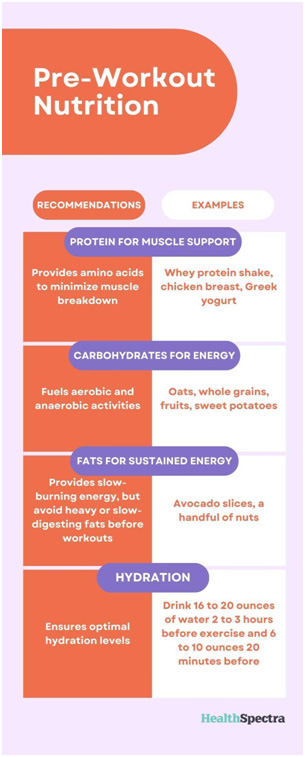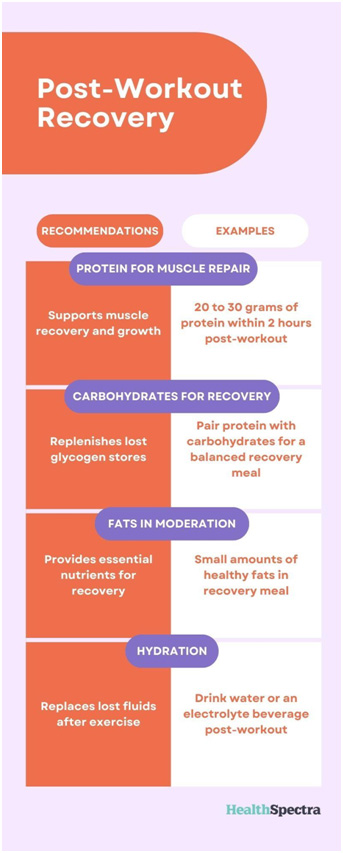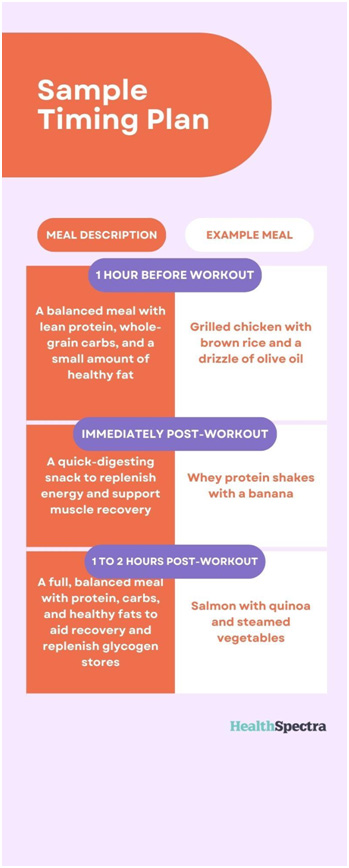Affiliate Disclaimer
Some links in this article are affiliate links. We may earn a small commission if you make a purchase through these links, at no extra cost to you. We only recommend products we find useful to our readersNutrient timing is important but often ignored by most people. It plays an essential role in maintaining energy levels throughout the day. When you consume the right nutrients at the right time, you optimize energy, improve your overall performance, and support your overall health.
Whether you’re tackling daily tasks, working out, or focusing at work, understanding when and what to eat can significantly improve your energy and performance.
In this article, we will examine the science behind nutrient timing and how to strategically consume carbohydrates, proteins, and fats for optimal energy levels.
What is Nutrient Timing?

Nutrient timing involves eating certain nutrients at particular times of the day to optimize energy levels, enhance performance, and support recovery.
For instance, consuming protein after a workout helps with muscle recovery, while carbohydrates restore glycogen stores. The “anabolic window,” a period immediately following exercise, is when your body is most efficient at absorbing nutrients.
However, nutrient timing isn’t a strict rule—it should be personalized, as individual metabolic needs and overall diet play a significant role in your energy levels.
Best Times to Eat Carbohydrates
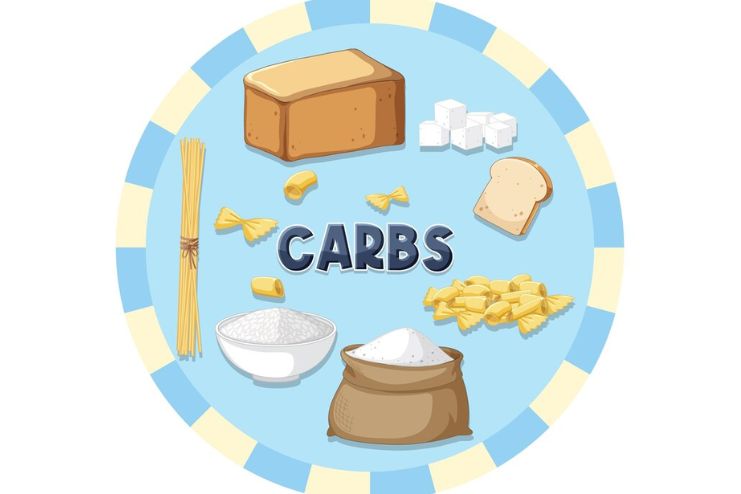
Carbohydrates are your body’s primary energy source. The timing of carb consumption can influence energy levels and workout performance. Optimize carbs for energy to support your health, and opt for whole, unprocessed complex carbohydrates.
- Morning Carbs for Energy and Focus
Begin your day with healthy carbs to give yourself a boost. Whole grains, fruits, or oatmeal are excellent options for slow-releasing carbs that provide steady energy, keeping you energized and focused all morning.
- Pre-Workout Carbs for Performance
Consume carbs for energy 1 to 2 hours before a workout to ensure you have enough glycogen stores in your muscles. This will power you through the workout. Simple carbs, like a banana or toast, are easily digested and give you quick energy for a workout.
- Post-Workout Carbs for Recovery
Timing carbs is essential for a quick recovery after a workout. Have carbs within an hour of your workout to replenish lost glycogen stores. Pair them with protein for muscle repair. Consider a smoothie with fruit and yogurt or whole-grain bread with nut butter.
- Evening Carbs in Moderation
Reduce your carb intake in the evenings and nights. A moderate-carb dinner will provide sufficient energy for overnight repair and recovery. I prefer whole carbs like sweet potatoes or quinoa. Strictly avoid refined or sugary options as they disrupt sleep.
When to Eat Protein
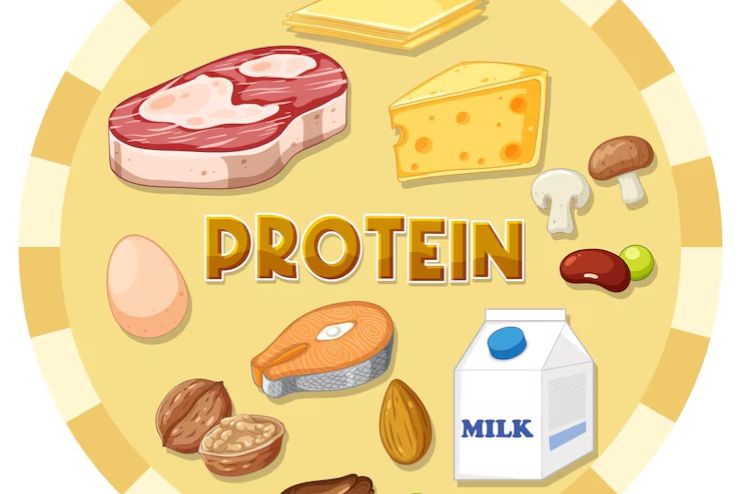
Protein is essential for muscle repair, growth, and energy levels. Understanding protein timing can help you maximize its benefits. Whether you’re an athlete, fitness enthusiast, or just want to maintain muscle mass, it is important to know when to consume protein.
- Pre-Workout Protein for Energy
Consume protein before a workout to fuel your sessions and minimize muscle breakdown. Pair it with carbs to ensure glycogen stores in your body are replenished. Try a protein shake with Greek yogurt and a banana or berries.
- Post-Workout Protein for Recovery
After exercising, your body enters the “anabolic window.” Consuming protein within 2 hours helps support muscle recovery and growth. Pair with carbs for optimal results, like a whey protein shake or eggs with whole-grain toast.
- Protein for Endurance and Performance
Combine protein with carbs during long endurance training sessions to improve performance and reduce muscle soreness. Sip on a protein-carb drink in the middle of the workout. This will help with sustained energy and aid in muscle recovery.
- Spread Protein Throughout the Day
For consistent energy levels and to boost muscle synthesis, spread your protein intake across all your meals. Aim for 25 to 30 grams of protein per meal for muscle recovery and maintenance.
- Protein Before Bed
Protein before bed can support muscle recovery during sleep. Casein protein, which digests slowly, is especially effective. Consider cottage cheese or a casein shake.
Timing Fat Consumption

Healthy fats provide slow, sustained energy and are vital for brain function and overall health. Here’s how to time your fat intake for optimal energy levels:
- Morning Fats for a Strong Start
Begin your day with a meal that includes healthy fats such as avocadoes, nuts, seeds, or olive oil for a slow-burning energy source. Fats do not provide quick energy like carbs but ensure sustained fuel for morning activities.
Consuming fats in the morning will reduce cellular inflammation and support metabolic balance.
Try breakfast options like avocado toast, greek yogurt with chia seeds, or a smoothie with nut butter.
- Midday Fats for Sustained Energy
Add healthy fats to your lunch to maintain steady energy levels and prevent afternoon energy slumps. Combine fats with lean protein and fiber-rich carbs to avoid blood sugar crashes. Try grilled salmon with quinoa, sautéed vegetables, and a drizzle of olive oil.
- Limit Saturated Fats in the Evening
Avoid saturated fats in the evening as they can disrupt your circadian rhythm, making you feel sluggish. They also affect sleep quality. Instead, opt for lighter meals in the evening that include lean protein, vegetables, and healthy fats, like a salad topped with a handful of walnuts.
- Omega-3s to Boost Energy and Prevent Inflammation
Add omega-3 fatty acids, found in fatty fish like salmon and mackerel, flaxseeds, and chia seeds to enhance energy levels and reduce inflammation. These will support recovery and stabilize energy levels when added to all meals, especially dinners.
Pre- and Post-Workout Nutrient Timing
Proper nutrient timing around workouts is crucial for maximizing performance and recovery.
Pre-Workout Nutrition
Post-Workout Recovery
Sample Timing Plan
Conclusion
Understanding nutrient timing can transform your energy balance, performance, and muscle recovery. By consuming nutrients strategically throughout the day, you can align your meals with your body’s nutrient needs.
Morning carbs will fuel your body; pre- and post-workout meals will support energy and recovery. When consumed in the morning, healthy fats will provide sustained energy throughout the day. Proteins, consumed throughout the day in a balanced way, will aid in recovery and growth.
Experiment with meal timing to suit your individual needs, and focus on whole, nutrient-dense foods. You can maximize energy levels, boost performance, and maintain a balanced life with the right approach.
References
- https://www.webmd.com/diet/what-is-nutrient-timing
- https://health.clevelandclinic.org/the-best-time-of-day-to-eat-carbs
- https://www.healthline.com/nutrition/best-time-to-take-protein
- https://www.cosmopolitan.com/health-fitness/news/a56466/best-time-of-day-to-eat-fat
- https://www.muscleandstrength.com/articles/time-your-pre-and-post-workout-nutrition
In this Article















